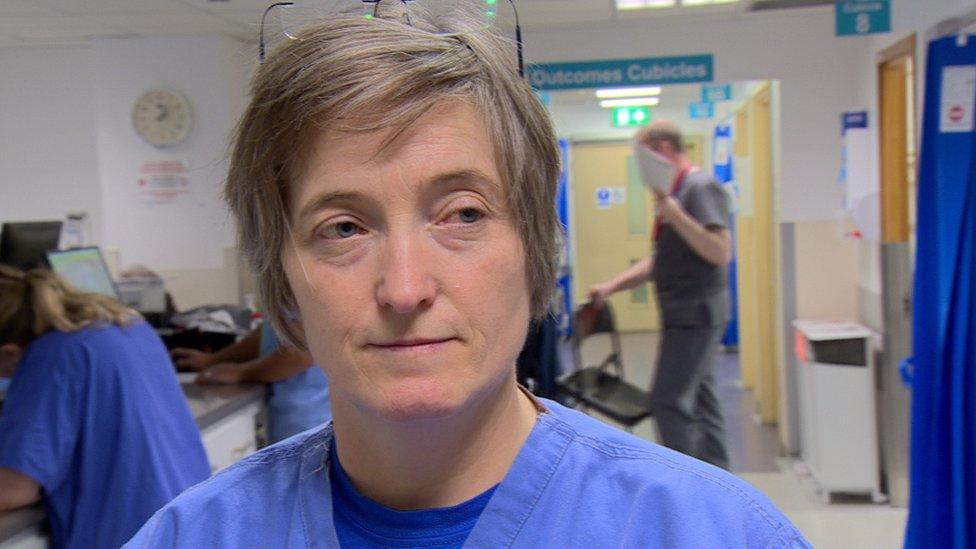Spice: The soup kitchen on the drugs frontline
- Published
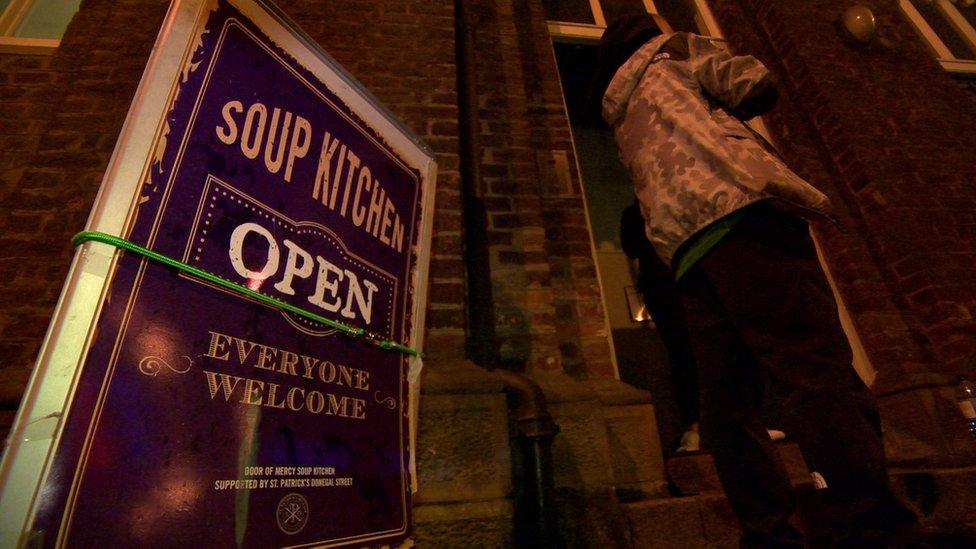
Staff at St Patrick's soup kitchen care for people every weekend, without judgement or payment
As I arrive at St Patrick's soup kitchen in north Belfast, it is clear the team are under pressure.
It's Friday evening and two women have just overdosed on the synthetic drug Spice.
The drug, which mimics marijuana, is also known as the zombie drug - and you can quickly see why.
The two women drift in and out of consciousness, groaning, asking for help.
It's an extremely distressing scene and one I can hardly bear to watch - but for the staff at St Patrick's, it's just another night.
They care for people every weekend, without judgement or payment.
One of the women is finding it difficult to stay awake.
The team decide to call for an ambulance. Half an hour later, paramedics are on the scene.
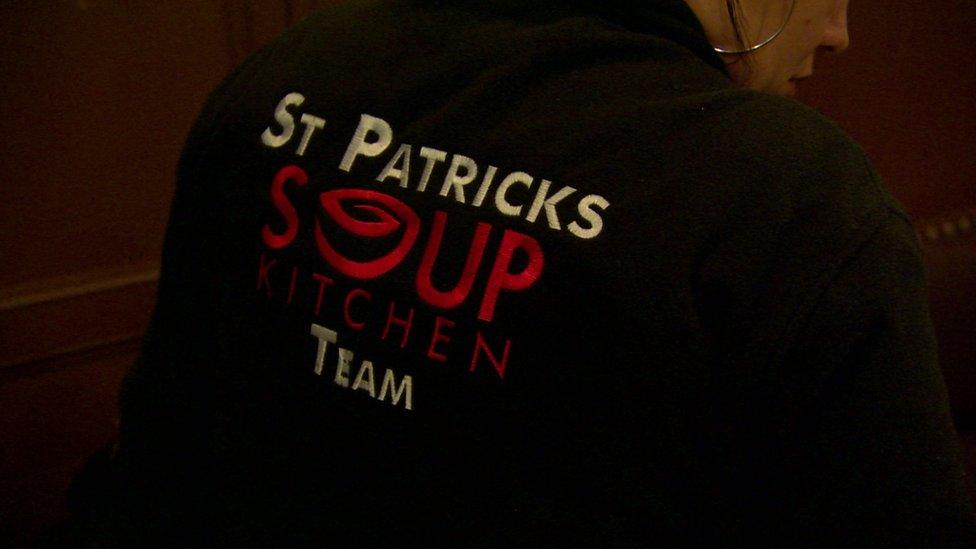
SDLP councillor Paul McCusker runs the soup kitchen. I hear him brief the paramedics.
"It's been a really busy night. They've taken Spice and heroin. They are responsive but they are not really maintaining that consciousness," he tells them.
Nine overdoses in four hours
One of the women is taken to hospital. The pressures on staff keep coming.
I meet a young man called Nathan. He has taken Spice and is unresponsive. The soup kitchen's staff are concerned.
"He's overdosed on Spice and alcohol, so we'll keep an eye on him until he comes round again. If not then we'll involve the ambulance service," says Mr McCusker.
Another team member, John, speaks to him: "Now, Nathan kid, come on, what are you doing with yourself? You're too good for this kind of life."
Nathan doesn't respond.
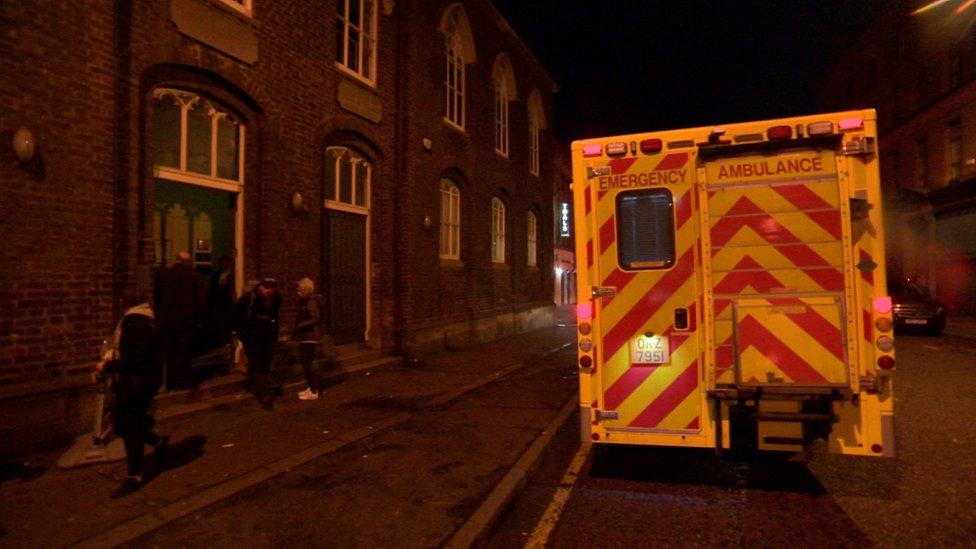
BBC cameras were at the soup kitchen for four hours.
In that time, nine people overdosed.
Most had taken a potentially deadly combination of heroin, spice and benzodiazepines.
"We have had to administer Naloxone four times tonight and we've actually just found another two ladies round the corner unconscious," says Mr McCusker.
"They'd smoked spice. Tonight the drugs have been spice, heroin and a range of prescription medication, like Lyrica, that have put people at serious risk."
'My life is a nightmare'
Kate is one of those at risk. She started taking drugs at 14 - ecstasy, cocaine and spice - and has been using heroin for the past six years.
"My life is a nightmare," she says. "I wish to God I never started [taking drugs] because it's ruined my life.
"I miss my family so much. I miss my nephew, I miss my nieces, I miss my daddy, I miss my mummy."
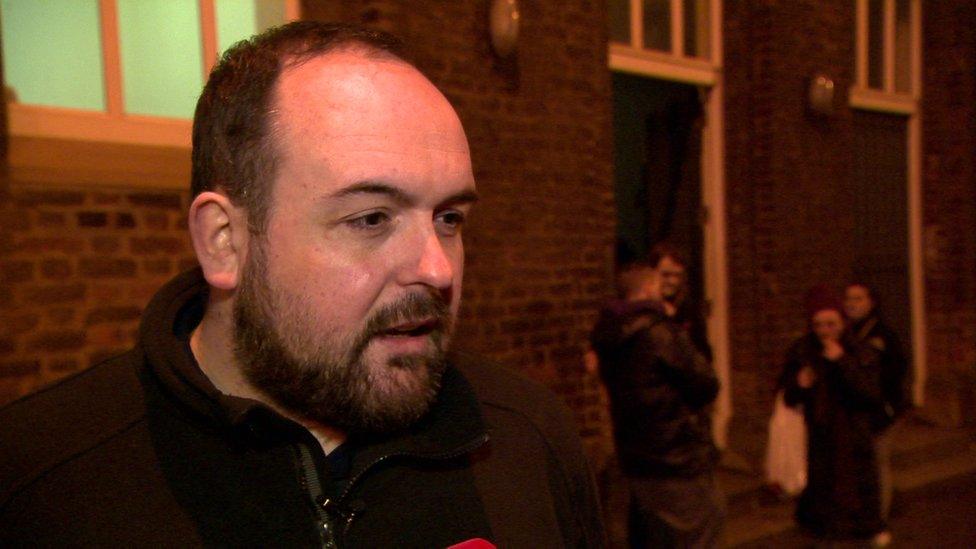
SDLP councillor Paul McCusker runs St Patrick's soup kitchen
"At the end of the day that's life," she adds.
After a while, Kate leaves the soup kitchen to go into town. She needs money for drugs.
I watch her leave and all I can think is that she's the same age as me. This is her life, a similar story to that of many drug users - vulnerable and isolated.
As I am leaving, I meet Anto. He also started using drugs as a teenager and was homeless at 17.
"When you're on the streets you have to take something to get through the day otherwise being on the streets would play with your head," he tells me.
I ask him about his hopes for his future.
"I don't think of the future. I think of day-by-day. I don't know if I'll make it to the future - I don't know."
Anto's worries aren't unfounded.
Last year, Northern Ireland saw the highest number of drug-related deaths on record - 189.
And despite calls not to mix drugs, some users are still taking three or more at a time.
Read more:
Medics on the frontline against drug abuse
- Published10 March 2020
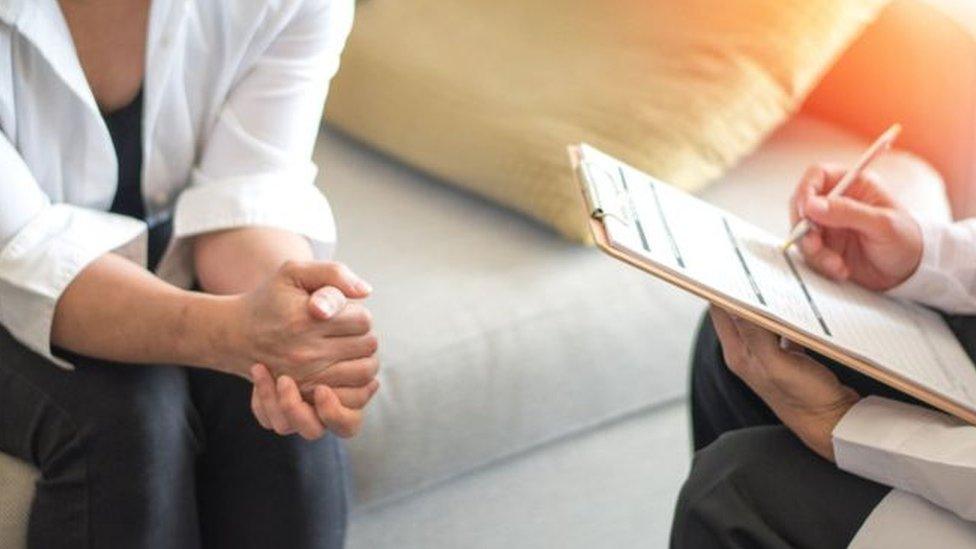
- Published16 January 2020
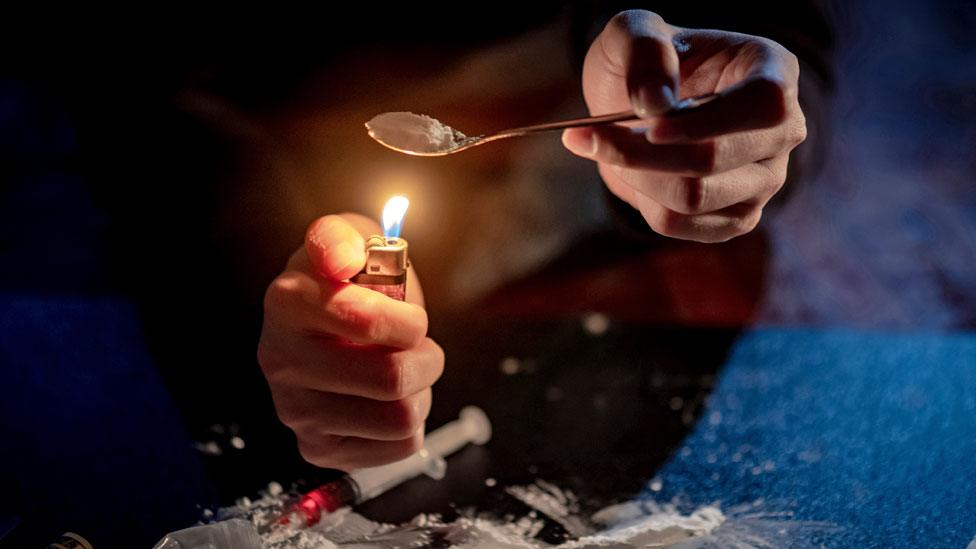
- Published9 March 2020
